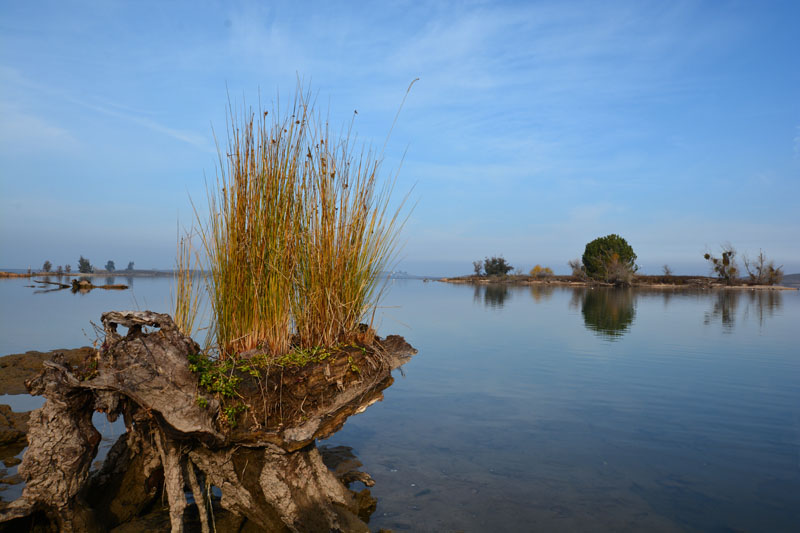
Trump appointee Secretary of Interior David Bernhardt may already have set new standards for an administration where turnover and scandals have become norms. Bernhardt’s predecessor, Ryan Zinke, left office in December after a “resign or be fired” edict from the White House, which viewed his real estate deals with Halliburton too much even for a government where conflicts of interest are just business as usual.
Given Zinke’s problems and ouster, Bernhardt’s appointment is doubly puzzling. Bernhardt entered office under a cloud for his past history as a lobbyist for entities like Westlands Water District.
And just recently, investigators are probing what appear to be ongoing working relationships with Westlands during Bernhardt’s term as Assistant Secretary. The interaction could be a violation of an ethics agreement that forbade working with Westlands until August 2018. An investigation of Bernhardt’s calendar shows he was working with Westlands on state and federal water policy for almost the entire year prior to the August date.
It’s no mystery what Westlands wants from Bernhardt and the Trump administration. Despite its status as the largest water district in the United States, Westlands has no water rights. The district depends on contractual water delivered by the Central Valley Project (CVP), a federal program whose origins date to the thirties and FDR’s New Deal.
Originally promoted as a conservation and flood control program that would help promote family farms, the CVP has over the years burgeoned into a political monster with an insatiable thirst.
At one time, the notion that “surplus water” could be diverted from watersheds to deserts was seen as a triumph of human ingenuity over nature. Decades ago, the science of ecology was in its infancy and only a tiny few futurists foresaw negative consequences from growth.
Today, every river in the south west is stressed far beyond capacity, historic wetlands have been reduced to less than ten percent of their former extent, and climate change will almost certainly bring longer droughts and more unpredictable rain patterns.

The prime example of western water woes is the Colorado River, a mighty tributary no one could have guessed would be taxed to a trickle, but it was. And now, even the Colorado River Delta, once a vast wetland that stretched farther than the eye could see has been reduced to, “a desiccated wasteland, dominated by invasive tamarisk trees and discarded trash.”
But history, ecology, and science matter little to Westlands Water District, which operates under one rule only. That rule mandates that Westlands get more water, and the only place there is more water is to the north and through the pumping systems and canals of the CVP.
Given that every aquifer save one in the San Joaquin Valley is critically overdrafted, Westlands Water District has no alternative other than to appropriate water from northern California, and no one should think David Bernhardt’s appointment as Secretary of Interior is unrelated to the money and political power behind Westlands Water District.
Bernhardt has already been working to assure Westlands will receive more northern California water, and he can count on plenty of support from San Joaquin Valley politicians like Devin Nunes and Kevin McCarthy. He can also count on the Oakdale Irrigation District to continue promoting water sales to Westlands, despite the decline of its closest aquifers, the last viable groundwater sources in the San Joaquin Valley.
Even decades ago, farming in an arid region where groundwater supplies were depleted made dubious sense. Today, the costs in energy and evaporation alone make water sales prohibitively expensive, but political clout will trump common sense every time.
Farming is far more cost efficient where water is abundant, cheap, and nearby, than where it is scarce, expensive, and far away, but none of that matters to the powers behind David Bernhardt and Westlands Water District. What matters is that David Bernhardt, despite glaring conflicts of interest, now has the full force of the federal government behind him, and David Bernhardt wants your water.

The level of corruption in the Trump Administration is incredible. The effort to monetize public water for private gain is incredibly transparent. The general public has not figured out that corrupt water transfers contribute to higher water rates and future shortage.
New Congressman Josh Harder is working for more water storage infrastructure. Such devices will alleviate but not eliminate shortage in future droughts. This is because the duration of a drought cannot be predicted; climate change is expected to make our droughts longer.
The only real cure for shortage is coastal desalinization plants. Westland Water District should help pay for the plants rather than create shortage elsewhere.